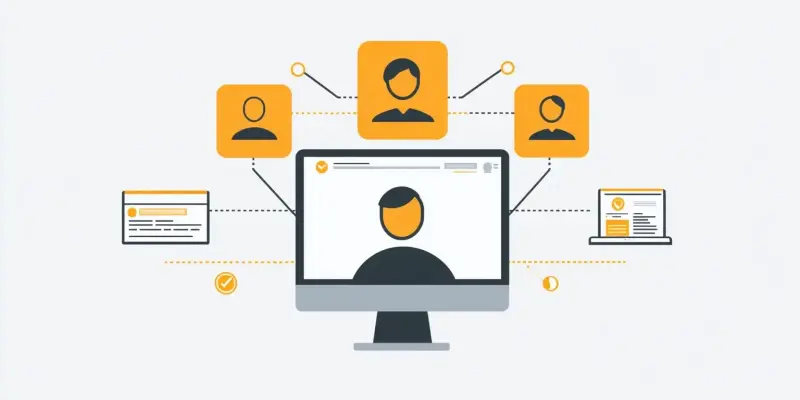In an era where social media platforms dominate the way we connect and communicate, brands are constantly seeking novel ways to create content that resonates authentically with their audiences. One of the most effective yet often overlooked strategies is employee-generated content (EGC). EGC entails content created and shared by employees, showcasing their personal experiences, perspectives, and insights about the brand they represent. This not only amplifies a company’s reach on popular social media platforms but also imbues the brand with a level of authenticity that traditional advertising or influencer partnerships often lack. This genuine connection can build deeper, more meaningful relationships with consumers, fostering trust and loyalty in ways that polished marketing campaigns simply can’t match.
Why Employee-Generated Content Works
Employee-generated content offers a behind-the-scenes view of a brand, allowing consumers to get an authentic glimpse of the people and processes that drive the company. This transparency builds emotional connections and trust, which are crucial elements in today’s marketplace. A compelling statistic emphasizes this point: 88% of consumers report that authenticity is an important factor in deciding which brands they support. In a report by TikTok, 50% of social/video platform users actively seek content that mirrors their own lives, underlining the public’s craving for real and relatable content. Emotional bonds fostered through authentic content do more than just increase social media engagement; they also directly impact consumer spending. Research has shown that 57% of consumers will increase their spending with brands they feel closely connected to, and 76% will choose such brands over their competitors.
EGC is also in harmony with the growing trend of peer-to-peer recommendations. A survey by Brandwatch highlighted that 45% of marketers believe this peer influence will be a significant trend this year. This shift indicates that audiences are more likely to trust recommendations from individuals within their own circles or who seem relatable to them, rather than traditional advertisements. Additionally, EGC is a more resource-efficient strategy compared to relying solely on external partners for content creation. By tapping into the deep understanding of their internal teams, brands can streamline the content creation process, making it more cost-effective and collaborative. This collaboration reduces the feeling of silos within a company, leading to a greater sense of belonging and engagement among employees, which in turn, boosts productivity. Moreover, EGC can be a valuable tool in recruitment efforts, as a 2021 study revealed that 86% of job seekers use social media to look for job opportunities.
How To Make EGC Work For Your Company
The first crucial step in implementing an effective employee content generation program is to establish a structured framework. By providing clear guidelines that outline the company’s tone, messaging, and visual identity, you help employees maintain a consistent brand image. This might involve offering branded templates, video filming and editing tools, and conducting training sessions to make sure all employees are well-versed with the available resources. When employees have a foundational understanding of what is expected, they are more likely to contribute valuable content that aligns with the brand’s identity. Structuring the program in this way ensures coherence and helps maintain the quality of the content being produced.
Next, it’s important to incentivize participation. EGC should not be viewed as an additional burden to employees but as an exciting opportunity to contribute and be recognized. Offering rewards for outstanding contributions can motivate employees to actively engage in content creation. Implementing competitions, such as monthly or quarterly content challenges, can inspire creativity and foster a sense of camaraderie among team members. At agencies like mine, we have seen success in hosting monthly challenges that encourage team members to create relevant and timely content for our clients, simultaneously showcasing thought leadership. Maintaining long-term engagement requires consistent recognition of employee contributions. Simple gestures like shoutouts, small gifts, or professional development opportunities can go a long way. Involving executives in these initiatives sends a powerful message about the importance of EGC and sets a positive example for the rest of the organization. By tapping into the unique voices of employees, companies can produce content that resonates deeply with their target audiences while also strengthening their internal culture.
Standing Out In a Crowded Market
Employee-generated content provides an inside look at a brand, offering consumers an authentic view of the people and processes behind the scenes. This level of transparency fosters emotional connections and trust, which are crucial in today’s market. A striking statistic supports this: 88% of consumers say authenticity influences their choice of brands. According to TikTok, 50% of users of social and video platforms seek content reflecting their own lives, showing a demand for real, relatable content. Emotional connections through authentic content not only boost social media engagement but also impact consumer spending. Studies reveal 57% of consumers spend more with brands they feel connected to, and 76% prefer these brands over others.
Employee-generated content aligns with the trend of peer-to-peer recommendations. A Brandwatch survey found 45% of marketers see this peer influence as significant this year. This shift shows audiences trust recommendations from relatable individuals more than traditional ads. Moreover, EGC is resource-efficient, leveraging internal teams’ deep understanding to streamline content creation, making it cost-effective and collaborative. This reduces company silos, enhancing employee engagement and productivity. Additionally, EGC aids in recruitment, as 86% of job seekers use social media to find job opportunities.

